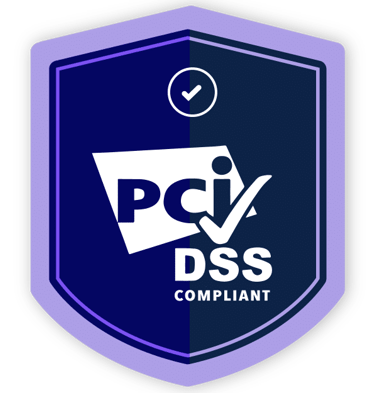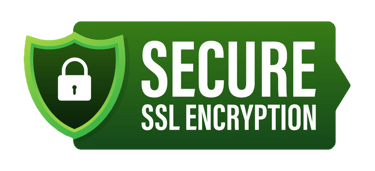Choosing the Right EMR for Home Health: Features, Compliance, and Workflow Optimization
Looking for the best EMR for your home health agency? Discover essential features, compliance requirements, security protocols, and workflow tools that every home health software must include to stay CMS-compliant and audit-ready.


Selecting the right Electronic Medical Record (EMR) system for your home health agency is one of the most critical decisions you'll make. An EMR impacts everything—from clinical documentation and compliance to billing, HR management, audits, and overall workflow efficiency. In an industry that relies heavily on timely documentation, Medicare billing accuracy, and strict regulatory standards, choosing the right platform can mean the difference between smooth operations and costly penalties.
This article will guide you through the most essential features and considerations when selecting a home health EMR system—helping your agency stay compliant, efficient, secure, and survey-ready.
Why Your EMR Matters in Home Health
Home health agencies operate in a high-risk, highly regulated environment. During Medicare audits, state surveys, or accreditation reviews, your EMR becomes the central hub for proof of compliance. It should enable you to easily:
Retrieve complete and accurate patient records
Submit documentation quickly to surveyors or auditors
Monitor staff compliance with documentation and credentials
Track billing issues and eligibility with precision
Your EMR isn’t just a software—it’s the digital backbone of your organization.
Must-Have Features in a Home Health EMR System
1. Comprehensive Clinical Documentation
Your EMR must provide detailed, customizable assessments that meet all CMS-required elements, such as:
OASIS-E assessments
Comprehensive care plans
Visit notes and skilled interventions
Medication reconciliation
Physician orders with digital signatures
Look for systems that include both structured templates and free-text fields for nuanced clinical narratives, plus real-time alerts for missing documentation.
2. Audit-Ready Data Management
During audits or surveys, your EMR should offer easy access to:
Frequency and visit logs
Signed visit notes
Plan of care history
Physician orders with timestamped entries
Missed visit documentation
An EMR with audit-ready dashboards, compliance tracking tools, and document version histories can help you avoid citations and payment holds.
3. Integrated Billing and Revenue Cycle Tools
Your billing system should seamlessly integrate with your EMR to prevent gaps between care and claims. Key features to prioritize include:
Eligibility verification tools
Real-time claim status tracking
Automated RAP/NOA alerts
Electronic submission to Medicare and commercial payers
Payment posting and reconciliation
Billing and documentation integration improves cash flow, reduces denials, and ensures accurate, timely reimbursement.
4. HR & Credential Management
Strong EMRs will include a robust Human Resources module that tracks:
License and credential expirations
Annual evaluations and training deadlines
TB tests, physicals, CPR cards
New hire onboarding requirements
Automatic alerts and dashboards help ensure staff compliance before it becomes a survey issue.
5. User-Friendly Interface
The best EMRs are designed for ease of use by field clinicians, office administrators, and leadership teams. Key usability factors include:
Mobile and tablet access
Offline functionality for in-home visits
Clean, intuitive layouts
Simple scheduling, note entry, and chart review
A user-friendly system not only saves time but improves staff satisfaction and reduces training costs.
6. Security and HIPAA Compliance
Given rising threats of data breaches, your EMR must offer:
End-to-end encryption for all PHI
Role-based access controls
Multi-factor authentication (MFA)
Audit logs for every user action
SOC 2 or HITRUST certifications
Security isn’t optional—it’s essential for protecting patients and avoiding major HIPAA violations.
7. Easy Document Uploads & Interoperability
Agencies need to easily upload and manage:
Physician orders
Face-to-face documentation
Hospital records
Lab results
Look for systems that support drag-and-drop uploads, e-fax integration, and automated document organization.
8. CMS Compliance and Accreditation Readiness
Your EMR should evolve with CMS and include:
Full OASIS-E compatibility
Alerts for overdue care plans, orders, and supervisory visits
Built-in QAPI and Emergency Preparedness forms
Templates aligned with ACHC, CHAP, and Joint Commission standards
Bonus Features That Add Value
Telehealth functionality for hybrid care
Caregiver and family access portals
Business intelligence dashboards
Electronic Visit Verification (EVV) tools
These advanced features help you grow your agency, improve communication, and stand out in the competitive home health market.
Why the Right EMR Is Crucial
Choosing the wrong EMR can result in:
Survey deficiencies and delays
Claims denials and revenue loss
Frustrated staff and high turnover
Wasted time, money, and resources
The right EMR system, however, helps you maintain regulatory compliance, streamline operations, and improve patient care outcomes.
How HealthBridge Can Help
HealthBridge offers expert consulting to guide agencies through every stage of the EMR journey—from software selection to full implementation and training.
Our services include:
EMR evaluations based on your agency’s size, specialties, and budget
Workflow customization to align with CMS and accreditor standards
Staff training and onboarding
Ongoing documentation audits to ensure readiness for surveys
QAPI integration, HR compliance support, and billing workflow optimization
Whether you're starting a new agency or upgrading your current system, HealthBridge ensures your EMR works for you—not against you.
Final Thoughts
The EMR you choose shapes the success of your home health agency. When selected wisely, it becomes a powerful tool to manage care delivery, improve documentation accuracy, ensure compliance, and drive financial stability.
Don’t leave such a critical decision to chance. Partner with HealthBridge to choose and optimize an EMR that meets your agency’s unique needs—and prepares you for audits, growth, and long-term success.
Links:
Home Health Conditions of Participation (CoPs)
§484.60 – Care Planning, Coordination of Services, and Quality of Care
§484.55 – Comprehensive Assessment of Patients (OASIS requirement)
§484.50 – Patient Rights
CMS Home Health Agency Overview Page





